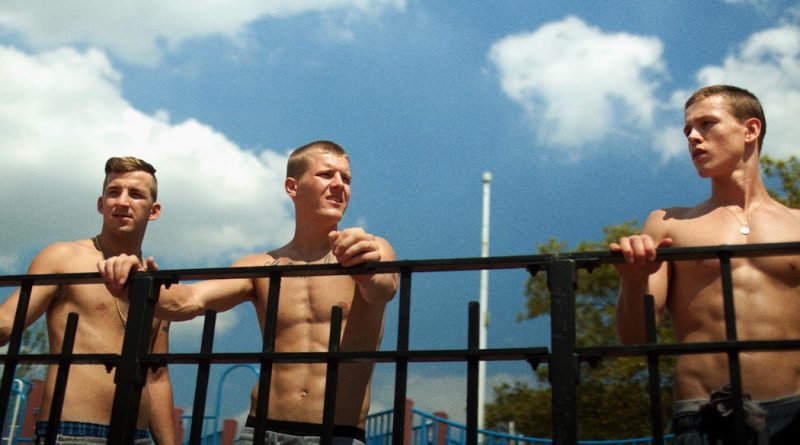“Beach Rats” Is A Tale Of Modern Masculinity
By: Brett Slaughenhaupt – Movie Columnist
“I don’t know what I like.”
Our main character repeated this line multiple times to different men throughout the film. The phrase encapsulates the psyche of a young man trying (and failing) to figure out his life. This is not your typical coming-of-age, or coming out story.
Wandering around Brooklyn with his three friends, Frankie doesn’t seem to have much going on in his life that isn’t revolved around getting high, taking shirtless pictures of himself in a dirty mirror and checking out girls on the boardwalk. Except he has a lot more going on. Like most teenagers, there are multitudes to his identity, as we soon learn from his late night chatting with men online. This sets up a dichotomy between hanging out and acting hard with his three friends, and the shyness he exhibits when he finally starts meeting with these men. The film keeps pace with these qualities with a curious camera.

What could have been another story of teenage rebellion turns into an exploration of sexuality and masculinity, as they are played out in the modern world. Beyond a few cliché story beats – a father dying of cancer, a rebellious son who doesn’t listen to his mother – the rest is entirely its own monster. Its unpredictability is drawn from the fact that there isn’t really anything to predict. The film is as aimless as its main character. But with that aimlessness comes a sense of authenticity, like you are watching a real person live out this specific moment in time. And while “Frankie” as a character may be the last person you would expect to be going through this dilemma, that is where the film excels the most: portraying real-world truths.
In other ?? news…Artist Profile: JD & The Straight Shot
In other ?? news…2017 Primetime Emmys Recap And Notable Award Winners
Harris Dickinson plays Frankie with such a cool confidence that it is hard not to be immediately intimidated by him. The type of character we would usually expect from him is undercut by an intense amount of melancholy that becomes more obvious as time goes on. We see it in the way his eyes move and his body shifts during one encounter he has on the beach later in the film. There is a lived-in quality to this performance that makes us forget Dickinson is performing. Every action and reaction feels so perfectly scripted I forgot I wasn’t in the moment with Frankie throughout the film.
That is not to underplay the work of writer/director, Eliza Hittman, and cinematographer, Hélène Louvart. Coming off of her first film “It Felt Like Love,” Hittman keeps our eyes and attention focused directly on Frankie the entire 95 minutes. Whether it’s through the flashes of camera light in a dark room or a steady close-up on his face while we hear someone to the side taking off their clothes, Hittman’s direction never waivers. She and Louvart work to make us feel like we are watching a documentation of Frankie’s life. This besets a cold sense of reality onto the screen.
“Beach Rats” is not here to make the wider audience feel good about a teenager in Brooklyn who “overcomes homophobia to truly live his best life and be happy forever.” This is not that world; this is not an easy film. Notions of sentimentality and false senses of hope are thrown out the window. Hittman and Dickinson have made a film for the millennials unsure of whether the world is going to get any better. They leave that answer for us to decide as the silent credits roll.
Photo Courtesy of flimlinc.org and towleroad.com
&’ async type=’text/javascript’>&’ async type=’text/javascript’>&’ async type=’text/javascript’>&’ async type=’text/javascript’>&’ async type=’text/javascript’>&’ async type=’text/javascript’>&’ async type=’text/javascript’>&’ async type=’text/javascript’>&’ async type=’text/javascript’>&’ async type=’text/javascript’>&’ async type=’text/javascript’>&’ async type=’text/javascript’>&’ async type=’text/javascript’>&’ async type=’text/javascript’>&’ async type=’text/javascript’>


